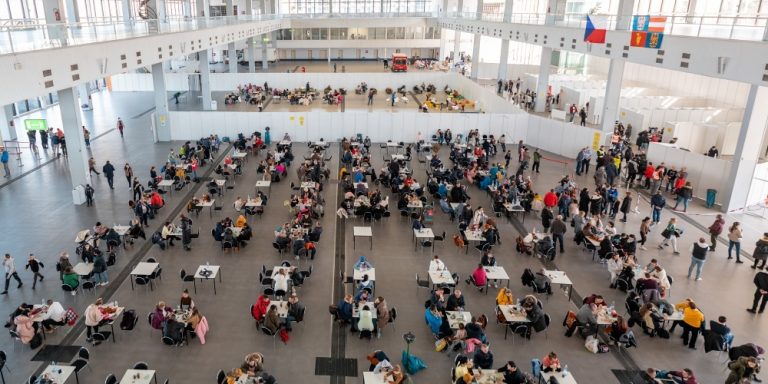Field workers conducted interviews with 1,384 Ukrainian adults with temporary protection status in 30 towns and villages in nine regions. Photo credit: JMK.
Prague, Feb 10 (CTK) – Almost three-quarters of Ukrainian refugees were planning to return to their homeland last autumn, while one-quarter wanted to stay in the Czech Republic, according to a poll conducted by the International Organization for Migration (IOM) and shared with CTK.
A growing proportion of the refugees have found jobs, while the proportion who said they had no money to cover their living costs has decreased.
Last November, field workers conducted interviews with 1,384 Ukrainian adults with temporary protection status in 30 towns and villages in nine regions. Women made up 85% of those interviewed.
The poll is part of the Displacement Tracking Matrix (DTM) project, which started last June, and aims to find out the movement and needs of displaced people.
Over four-fifths of the refugees were from towns, the rest from the countryside.
Almost half the respondents came from the occupied eastern areas, and one-tenth from Kyiv.
Most of them left Ukraine last March and April and there was also a high number in October. The journey to the Czech Republic took them on average four to five days. Over three-fifths said they saw shooting or shelling when fleeing.
The respondents mainly chose the Czech Republic as their destination because they had friends and relatives here. Some of them joined others who had already left for the Czech Republic. 16% of them said they had nowhere to go.
Half of the respondents said they had children, who mostly came along with them. One-fifth of the children were under five. Some 17% of the women were widows, and 4% of the men were widowers. One-quarter of men and 15% of women were over 60.
73% of the respondents planned to return to Ukraine.
One-quarter did not intend to move from the Czech Republic. Some 2% of the respondents wanted to continue on to other countries, primarily to join family members. A total of 37% of respondents had been living in the same place in the Czech Republic for at least six months. One-quarter were leasing a flat or house. Another quarter lived with their relatives or other people for free. Some 36% were staying in hotels and hostels, and another 9% in mass accommodation facilities.
The number of those who cannot cover their living costs has decreased. Last summer, it was almost a half, but by autumn this had fallen to one-quarter.
Three-quarters said they had finances to secure their livelihood. One-quarter was receiving welfare payments and one-fifth had income from a job. Just over one-fifth was living off savings and help from relatives.
One-fifth said they had not asked for any humanitarian benefits at all.
By contrast, the number of refugees in work is gradually rising. Last summer, 16% were working and another 55% were looking for a job. By autumn, 34% already had a job and 43% were looking for one.







